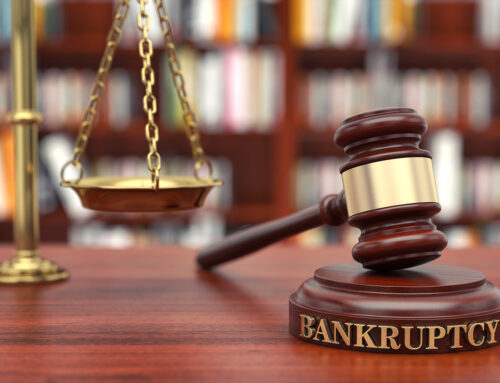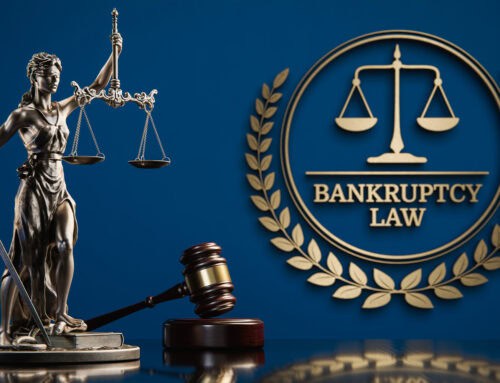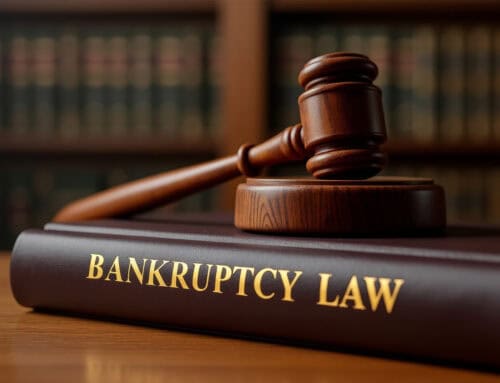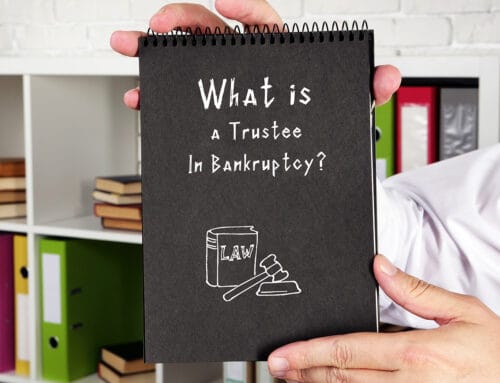How Can Bankruptcy Help to Avoid Wage Garnishments?
Wage Garnishments can be the kiss of death for consumers who are already barely scraping by. If your wages have been garnished and you feel like you are in this category, do not despair, you are not alone. It turns out that 80% of the employees in the United States are living paycheck-to-paycheck, and there isn’t anything left at the end of the month.
Creditors who are trying to collect on past due accounts or have a judgment against you will often attempt to collect on those debts through wage garnishment. Depending on the type of debt, wage garnishments can take one-quarter or 25% of your base take-home pay. This is the amount your employer will send to your creditor, and you’ll end up with the rest – a much skinnier paycheck. Problem is most people can barely make it on their current take-home pay, so taking 25% will cause a cascading effect, meaning you won’t be able to pay your other bills or worse, have no money left for food.
Note: If you have wage garnishments for child support, all bets are off and the 25% does not apply
Chapter 7 Bankruptcy Can Stop Most Types of Wage Garnishments
If you file for a Chapter 7 Bankruptcy you can prevent wage garnishment, or stop existing wage garnishments, at least while the proceedings are going on. This is because an ‘automatic stay’ starts upon filing for bankruptcy. The automatic stay is a court order or injunction.
If you have a wage garnishment for child support, your bankruptcy attorney may get them stopped temporarily, but since these types of garnishments come under a different category, you won’t be able to discharge the money owed in Bankruptcy. If you file a Chapter 13 bankruptcy you will be allowed to submit a 3-5 year plan, provided you are making the payments in the plan. The court must then approve the plan. You’ll need a good attorney to help you so your plan is approved and you can move forward.
If I File for Bankruptcy; How Long Does It Take to Stop Wage Garnishments?
It usually takes 10-days or less for the court to process and send out the information/notification to your creditors. It’s important to have your bankruptcy lawyer immediately call your employer, and fax them the court’s stamped court order and/or case number, specific court, and filing date. Sometimes a quick phone call and a fax to your employer’s payroll department is all that’s needed. Then later an official certified attorney letter with documents attached can be sent to follow-up.
If this is not done swiftly, your employer may not realize in time and deduct the wage garnishment from your next paycheck. Time is of the essence, these things will not happen without action.
Can I Get Back the Wage Garnishment Money Already Taken Out of My Paycheck?
Yes, it is possible to get back some of the money taken out in wage garnishment before your bankruptcy was filed, although it is very difficult to get back money that was taken out more than 90-days the prior. A good bankruptcy attorney in your area can explain how that works, why it is somewhat difficult, and how much it will cost. There will be additional paperwork to file with the court, and in some states you may need a “bankruptcy exemption” filing so you can keep and protect that money from the bankruptcy proceedings.
Yes, this can get complicated, but a seasoned bankruptcy lawyer knows the bankruptcy laws in your state and can figure out how to proceed. Since there is a ‘real cost’ to filing more paperwork or lawsuits to get the money back, you might decide to forgo that cost. Your attorney will explain.
After the Bankruptcy Proceedings End Will My Creditors Restart My Wage Garnishment?
After your bankruptcy your creditors can only put wage garnishments on non-dischargeable debts. Any debts discharged by the bankruptcy are no longer owed and are deemed uncollectable by the court. Your creditors are not allowed to restart wage garnishments on any of those former debts. If they were to try, those monies are not owed, and your former creditors would be in violation of a court order.
How Do I Learn More About My Legal Rights in Bankruptcy?
Since bankruptcy law is a moving target, and since the laws vary from state-to-state, it’s best to find an experienced bankruptcy lawyer who is licensed in your state. Ask them all the questions you have, and listen intently to their answers. Bankruptcy sounds unappealing to many, but it can be a powerful strategy to get your financial situation back on track.
Disclaimer: This article is intended for informational purposes only and does not constitute legal advice. For personalized assistance, please contact our office at (805)494-8400.





